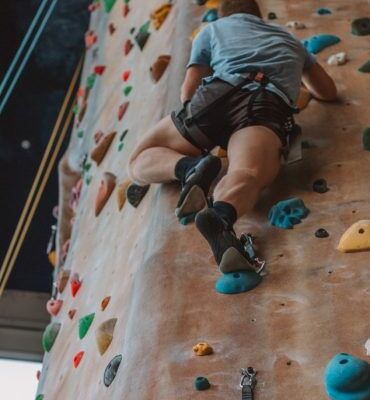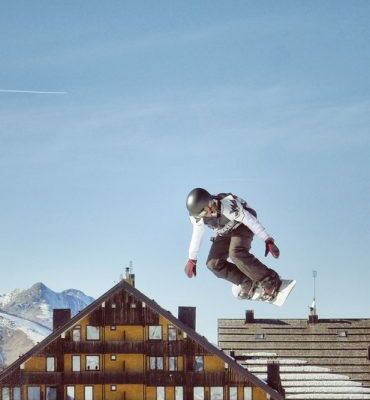How does sport affect our brain?

How does physical activity affect learning performance? Why does sport make us ecstatic and why is it addictive? How does a competitive athlete’s brain react to stress? These questions are answered by scientists who decided to investigate how movement affects our brain.
Children who are active in sport achieve better results at school
With each year, an increasing number of studies confirm the influence of physical activity on the flexibility of our brain. Research conducted by Professor Charles Hillman of the University of Illinois shows that children who exercise regularly show greater ability to concentrate and they can learn faster. In turn, research done by Reynolds and Nicolson showed that children who took part in physical exercise had better memory and achieved better reading comprehension results. It was a big surprise for many researchers that physical activity stimulates the brain to produce new nerve cells.
Read lessChildren who are active in sport achieve better results at school
With each year, an increasing number of studies confirm the influence of physical activity on the flexibility of our brain. Researc…

– A lot of research is devoted to monitoring the nervous system, among others, secretion of such factors as BDNF Alpha. This factor tells us, among other things about the growth of gray matter in the brain – says Natalia Grzebisz, PhD from theVistula School of Hospitality. The sensitivity of BDNF Alpha to exercise is best shown by research carried out among people suffering from the Alzheimer’s disease. Researchers at the University of Kansas have confirmed that 30 minutes of walking a day improves patients’ brain activity and positively influences their intelligence test results. – That is why it is so important to promote habits related to sports activity from an early age and education in this subject. On May 11, we take part in the 23rd Science Picnic devoted to the topic of Machines and Us. Our brain and our body are machines that, in order to function properly, need exercise and a proper diet – says Dr. Natalia Grzebisz from theVistula School of Hospitality.
A mixture of adrenaline, dopamine and endorphines creates in our brain a feeling of euphoria
No intellectual successes will give us such a sense of self-realization, self-fulfillment and self-determination as sport. Physical activity oxygenates the brain, improves blood circulation, relieves tension and gives the body a sense of fulfillment, soothing and satisfaction. When stimulated, the body releases adrenaline, which can act like a drug and become addictive. A mixture of adrenaline, dopamine and endorphins puts our brain in a state of euphoria and makes us want to play sports even more often and we tend to set our goals even higher. In extreme cases, the bar is raised so high that it leads to self-destruction. – I think it is part of the profile of a typical marathon runner. These are people who need physical destruction which is like catharsis. They need pain to feel that they are alive – adds Natalia Grzebisz, PhD from the Vistula School of Hospitality.
Read lessA mixture of adrenaline, dopamine and endorphines creates in our brain a feeling of euphoria
No intellectual successes will give us such a sense of self-realization, self-fulfillment and self-deter…

This adrenaline addiction is very common in competitive sports. A telling example here is the story of Adam Małysz, who, after finishing his career as a ski jumper, reached for an equally dangerous discipline – off-road rallies. Similarly, climbers cannot lead a peaceful life and accept death as a price for their passion. As Kinga Baranowska, a conqueror of nine eight-thousanders, emphasizes in one of the interviews, it is not only about reaching the summit, but foremostly about the road you follow to get to the top.
A professional athlet’s brain reacts differently to stress
Such a story of success and a road leading to it has recently been shown in a popular documentary Free Solo, which presents Alex Honnold’s preparations and his conquest without protection of El Capitan, a wall in Yosemite National Park in the USA. According to research conducted on the Honnold by American scientists, his brain reacts differently to stress if compared to the brains of people who do not practice extreme sports. The study looked at how the brain responded to fear-inducing images. Interestingly, in the case of Honnold, the amygdala, which deals with the process of fear, aggression, anxiety and social interactions, did not show any activity as if his emotions were not stirred at all at the sight of these images.
Read lessA professional athlet’s brain reacts differently to stress
Such a story of success and a road leading to it has recently been shown in a popular documentary Free Solo, which presents Alex Honnold’s…

“I don’t think I was born with a higher fear tolerance level. However, it’s hard to tell, no one scanned my brain when I was little. But I’ve spent so much time in dangerous situations, while free solo climbing that I need much stronger stimuli than photos to get scared”, says Alex Honnold.
Can we keep the brain fit without exposing the body to extreme strain?
Are people genetically predisposed to achieve better athletic results? Can exercise prevent age-related neurodegenerative disease-related brain damage? Scientists still do not know the answers to these questions.